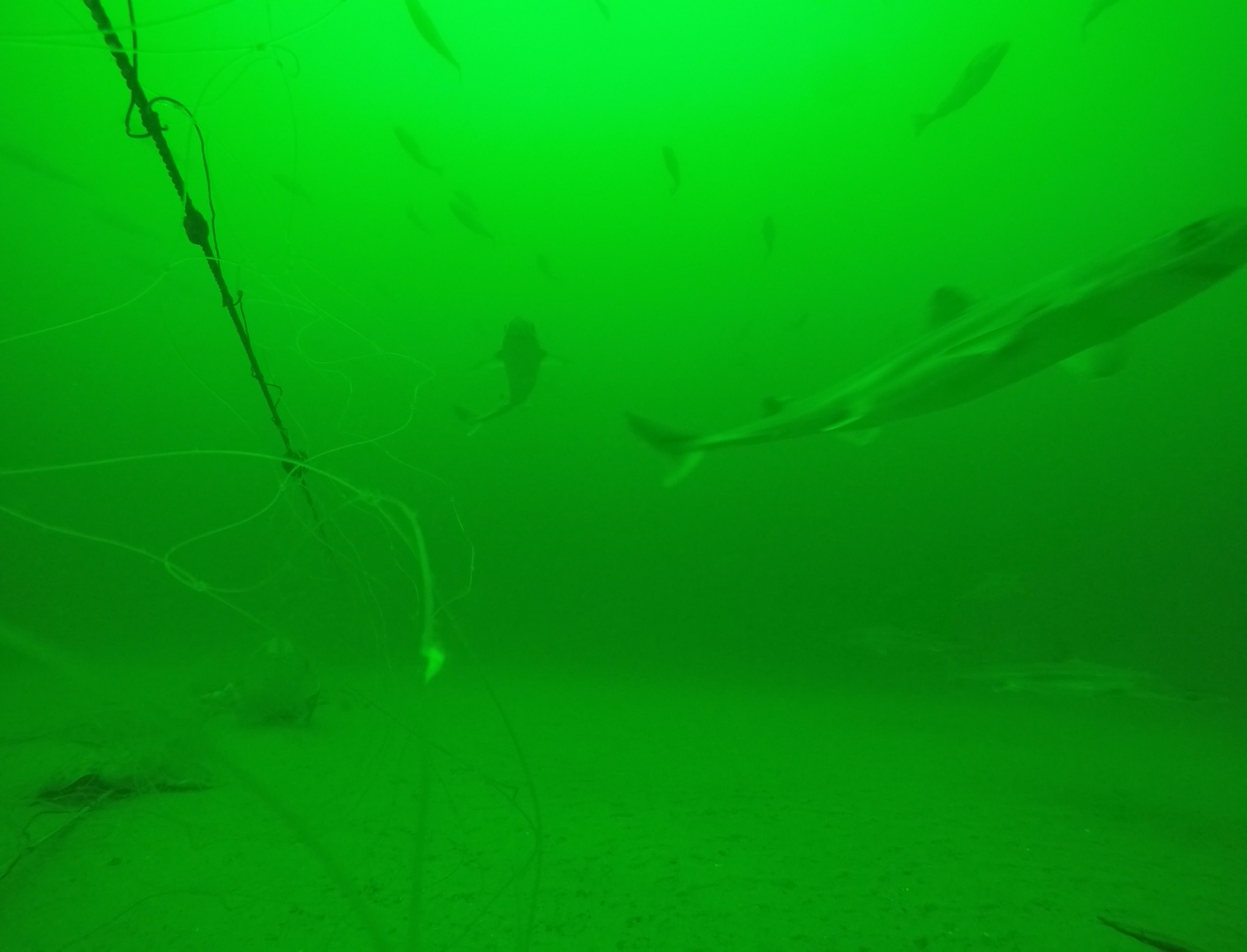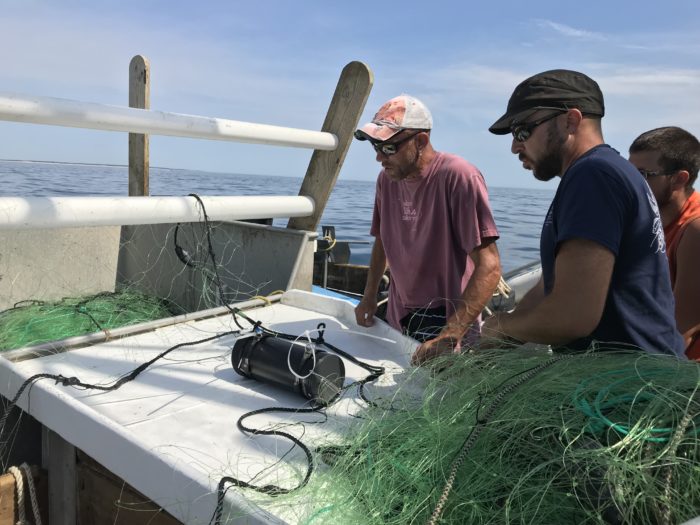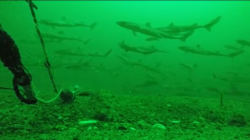

Commercial fisherman Doug Feeney, researcher Owen Nichols, and crew member Tim Welgey attach the underwater camera system to the gillnet. Credit CCS/WHOI
Provincetown, MA — A group of scientists from the Center for Coastal Studies (CCS) and the Woods Hole Oceanographic
Institution (WHOI) are working with commercial fishermen to understand bycatch and depredation in gillnet fishing gear.
Fishery bycatch – the incidental capture of non-target species – is currently the primary cause of mortality for marine mammals globally. Small cetaceans, seals, spiny dogfish and other species are attracted to fish caught in nets, and can also get caught in the net while trying to prey on the catch. The cost of damaged gear and lost catch that results from this depredation have immeasurable economic impacts on the fisheries.
The study, designed in cooperation with local fisherman Doug Feeney, utilizes a remotely operated vehicle and video cameras fixed directly to his fishing gear to collect video of these animals’ behavior in and around gillnet gear. Underwater footage recorded during the latest research phase captures video for the first time of active sink-gillnet fishing in the northeast US.
utilizes a remotely operated vehicle and video cameras fixed directly to his fishing gear to collect video of these animals’ behavior in and around gillnet gear. Underwater footage recorded during the latest research phase captures video for the first time of active sink-gillnet fishing in the northeast US.
On deck, the catch is sorted and depredation is assessed and documented by the team using evidence of bite marks and other damage.
Analysis of the footage and depredation data will determine when and how predators eat the catch and provide an estimate of the volume of catch consumed. It will also help quantify differences between the perceived and actual cost of depredation on the gillnet fishery.
Armed with this information, the partners will be able to determine how fishing practices can be modified to reduce possible conflicts between gear, catch, and predators. The eventual goal is a reduction in the frequency of marine mammals interacting with gillnet gear.
The ultimate objective of this study – to build collaboration, trust, and community among local fishermen, researchers, and managers – bolsters efforts to maintain sustainable fisheries and practices while addressing the impacts of conservation and management measures.
This work is supported by the National Marine Sanctuary Foundation and the Marine Mammal Commission.
# # #
Contacts:
Erin Koenig (Woods Hole Oceanographic Institution) media@whoi.edu 508-289-2270
Cathrine Macort (Center for Coastal Studies) cmacort@coastalstudies.org508-487-3622 x103
Chip Weiskotten (National Marine Sanctuary Foundation) chip@marinesanctuary.org 518-669-3936
